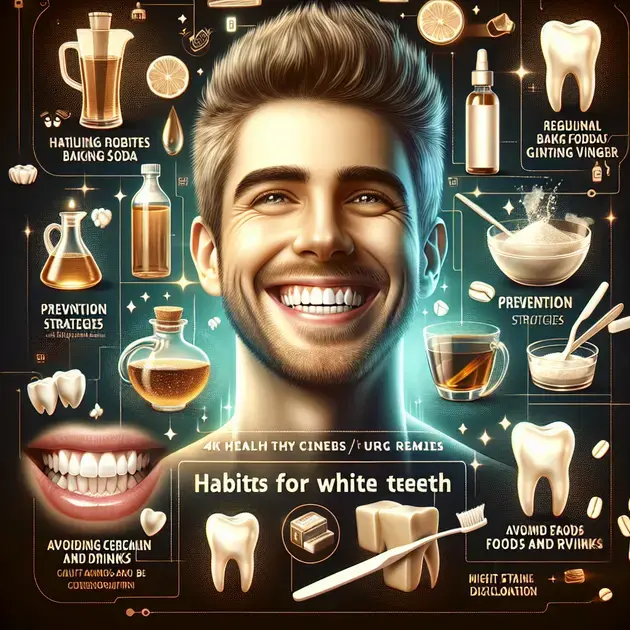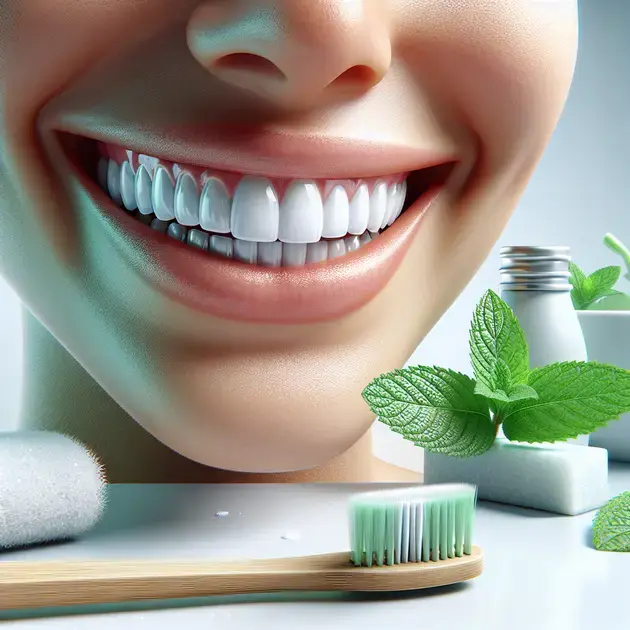Are you wondering why your teeth are yellowing and how to fix it? Well, you’re not alone. Yellow teeth can be a common concern for many people, and there are various reasons why this discoloration may occur.
Factors such as diet, oral hygiene habits, and aging can all play a role in the yellowing of teeth. Fortunately, there are several effective ways to address this issue and regain a bright, white smile. In this blog post, we will explore the reasons behind yellow teeth and provide tips on how to fix and prevent it.
Causes of Yellowing Teeth
Yellowing teeth can be caused by various factors, including diet, lifestyle habits, and certain medical conditions. Drinking dark-colored beverages such as coffee, tea, and red wine can stain the teeth over time. Smoking or using tobacco products can also contribute to yellowing. Poor oral hygiene, such as inadequate brushing and flossing, can lead to plaque buildup and discoloration. Additionally, certain medications like tetracycline can cause intrinsic stains on the teeth.
To prevent yellowing teeth caused by diet and lifestyle habits, it is important to limit the consumption of staining beverages and quit smoking. Regular brushing and flossing, as well as professional dental cleanings, can help remove surface stains and prevent plaque buildup. If intrinsic stains are a concern, consulting with a dentist about potential treatment options, such as whitening procedures or veneers, may be beneficial.
One useful app for tracking and managing oral hygiene habits is the “My Teeth” app, available for download on both iOS and Android devices. This app allows users to set reminders for brushing and flossing, track their oral care routine, and receive tips for maintaining a healthy smile.
Tips for Whiter Teeth
There are several tips and tricks you can incorporate into your daily routine to achieve whiter teeth. One effective method is to regularly brush your teeth with a whitening toothpaste that contains ingredients like hydrogen peroxide or baking soda. Whitening strips or trays can also help to lighten stains on the teeth over time.
In addition to using whitening products, maintaining a balanced diet rich in fruits and vegetables can help prevent staining and promote overall oral health. Crunchy foods like apples and carrots can act as natural toothbrushes, helping to remove surface stains. Drinking plenty of water throughout the day can also help wash away food particles and prevent discoloration.
For a more targeted approach to whitening, consider trying the “BrightSmile” app, which offers personalized recommendations for teeth whitening products based on your specific needs. This app can be downloaded for free from the App Store or Google Play.
Prevention Strategies for Yellow Teeth
Preventing yellow teeth starts with establishing good oral hygiene habits and making healthy choices. Brushing your teeth at least twice a day and flossing regularly can help remove plaque and prevent stains from setting in. Using a mouthwash with fluoride can also strengthen tooth enamel and protect against discoloration.
Avoiding excessive consumption of sugary and acidic foods can help prevent erosion of the enamel, which can make the teeth appear yellow. Incorporating foods high in calcium, such as dairy products, can also help maintain strong and healthy teeth. Regular visits to the dentist for check-ups and cleanings are essential for early detection of any potential issues that could lead to yellowing.
For personalized recommendations on preventive dental care, consider using the “Dental Care Pro” website, which offers valuable tips and resources for maintaining a bright and healthy smile. Visit their site at www.dentalcarepro.com for more information.
**Common Habits That Contribute to Teeth Discoloration**
Consuming Staining Foods and Beverages
One of the common habits that contribute to teeth discoloration is consuming staining foods and beverages. Items such as coffee, tea, red wine, and berries contain pigments that can adhere to the enamel of your teeth over time, causing them to become discolored. To minimize the impact of these staining substances, it is advisable to brush your teeth or rinse your mouth after consuming them.
Moreover, habits like smoking can also lead to tooth discoloration. The tar and nicotine present in cigarettes can stain the teeth and result in a yellowish appearance. Quitting smoking is not only beneficial for your overall health but can also help in maintaining a brighter smile.
Additionally, poor oral hygiene practices can contribute to teeth discoloration. Not brushing and flossing regularly can lead to the buildup of plaque and tartar, which can make your teeth appear yellow or dingy. It is essential to follow a proper oral care routine to prevent discoloration and maintain oral health.
Inadequate water intake can also be a factor in teeth discoloration. Water helps in washing away food particles and reducing the acidity in the mouth, which can contribute to stains. Drinking an adequate amount of water throughout the day can help in maintaining a healthy smile.
Lastly, certain medications like antihistamines and antipsychotic drugs can cause teeth discoloration as a side effect. It is important to be aware of the potential effects of medications on your oral health and consult with your healthcare provider if you notice any changes in the color of your teeth.
Natural Remedies to Brighten Your Smile
When it comes to brightening your smile, natural remedies can be a safe and effective option. These remedies can help remove surface stains and promote overall dental health without the use of harsh chemicals. Here are some natural remedies to consider:
1. Oil Pulling
Oil pulling is an ancient practice that involves swishing oil (such as coconut oil) in your mouth to remove bacteria and promote oral health. This can also help in reducing plaque buildup and keeping your teeth looking clean and white.
2. Baking Soda Paste
Baking soda is a mild abrasive that can help in removing surface stains on the teeth. Creating a paste with baking soda and water and brushing your teeth with it a few times a week can help brighten your smile naturally.
3. Hydrogen Peroxide Rinse
Hydrogen peroxide is a common ingredient in whitening products due to its ability to whiten teeth. Mixing hydrogen peroxide with water and using it as a mouthwash can help in reducing stains and improving the brightness of your smile.
4. Apple Cider Vinegar Rinse
Apple cider vinegar has natural whitening properties that can help in removing stubborn stains on the teeth. Diluting apple cider vinegar with water and using it as a rinse can help in brightening your smile over time.
5. Eating Crunchy Fruits and Vegetables
Fruits and vegetables like apples, carrots, and celery contain natural fibers that can help in scrubbing away surface stains on the teeth. Including these crunchy foods in your diet can contribute to a brighter smile and improved oral health.
**
Conclusion
**
Teeth discoloration can result from common habits such as consuming staining foods and beverages, smoking, inadequate oral hygiene practices, insufficient water intake, and certain medications. Pigments from items like coffee, tea, red wine, and berries can adhere to teeth enamel, leading to discoloration over time. Quitting smoking and maintaining a proper oral care routine are crucial steps in preventing teeth staining and promoting oral health. Additionally, staying hydrated by drinking an adequate amount of water throughout the day can help wash away food particles and reduce acidity in the mouth, reducing the likelihood of stains.
Natural remedies provide safe and effective options for brightening your smile without harsh chemicals. Practices like oil pulling with coconut oil, using a baking soda paste, rinsing with hydrogen peroxide, and apple cider vinegar can help remove surface stains and improve the brightness of your teeth. Including crunchy fruits and vegetables like apples, carrots, and celery in your diet can also contribute to a brighter smile by scrubbing away stains naturally.
By being mindful of these habits and incorporating natural remedies into your dental care routine, you can effectively combat teeth discoloration and maintain a healthy, white smile. Remember, good oral hygiene practices, a balanced diet, and staying hydrated are key elements in preventing and reducing teeth stains, ensuring optimal oral health and a confident smile.

